Randy Ribay's Blog, page 2
October 31, 2018
COVER REVEAL!
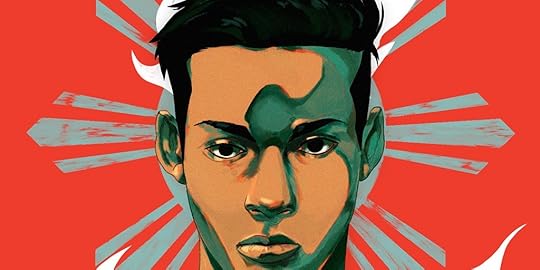
On Monday, Penguin Teen revealed the cover of PATRON SAINTS OF NOTHING, my next book, out in June 2019 from Kokila/Penguin Random House! You can see the full cover and read an exclusive excerpt at the link above.
The book tells the story of Jay Reguero, a Filipino American teen, who travels to the Philippines to figure out what truly happened to his Filipino cousin who was killed as part of President Duterte’s war on drugs.
September 18, 2018
BOOK #3 ON THE WAY!
[image error]
After five months of sitting on this secret, I can finally announce that my next book, PATRON SAINTS OF NOTHING, will be out in summer of 2019 with Kokila Books (a new imprint of Penguin Random House)!
This has been in the works for several months, so I’m excited that I can finally talk about it. Stay tuned for more updates…Ya know, like a cover…which may exist already and may DEFINITELY be breathtaking…
[image error]
June 15, 2018
AFTER THE SHOT DROPS NOW ON AUDIOBOOK!
[image error]
AFTER THE SHOT DROPS is now available on audiobook! Thanks to JB Adkins and Ramón de Ocampo for bringing Bunny and Nasir to life! As an avid audiobook listener and believer in Universal Design for Learning, I’m thrilled that my story is now accessible to even more readers. Check out a sample here.
To purchase:
May 27, 2018
On Stories and Empathy
For the last few years, I’ve ended every school year by giving students what I refer to as my “empathy” speech, a 5-7 minute attempt to contextualize the importance of the subject I teach (English). None of this is probably terribly new, but this year I felt like writing it out because this is my blog and I can do what I want. So here’s a modified/expanded version…
Nothing that we do in school matters as much as we think it does. GPA, test scores, college acceptances. Our culture pushes these so hard on kids as markers of success. If you work in schools or are a parent of a teen (or have been a teen in this society), you’re probably well aware of the psychological/emotional damage that results from encouraging kids to base their self-worth or identity on material success. We might admire people for their achievements, but, ultimately, when we think of the people who personally matter to us most and why, it’s probably not because of any of these things.
At the end of the day, what matters most in this world is how we treat other people. The people that matter most to us personally are the ones who have shown us the most compassion, who have been there for us during difficult times, who have accepted us fully no matter what, who have genuinely listened to us and made us feel seen and understood. Doing these things for others does not require a 4.0, a perfect SAT score, or a college degree. (Not to say the material doesn’t matter at all–it’s difficult to care for others if all of your emotional energy is spent on surviving at the material level.)
Empathy must be at the heart of our actions toward others. Not obligation. Not our resume. Not a desire to appear “good” to others or to ourselves. People can sense fakeness a million miles away, and when they do, those actions become condescending or demeaning or dehumanizing. Instead, we must strive to feel as others feel to the extent we are best able to and let that guide how we treat them. This means when something good happens to a close friend, we feel happy not jealous. It means when a loved one is sad, we understand that they need to process that sadness, not just stop crying. It means when a community we care about suffers injustice, we want to help them make things right.
Admittedly, this is an uphill battle. We’re ego-driven creatures in a society that values individualism over all else. However, I believe it’s possible to develop our capacity for empathy in the same we can we develop our physical health, intelligence, wealth, or success–and it’s more important that we do so. This doesn’t happen passively, though. We need to strive to do so in the same way we work so hard to build those others aspects of our lives.
Listening is the way to expand empathy. I’m not talking about engaging in a debate and listening to someone’s abstract political opinions. I’m referring to truly listening to someone else’s personal story–what has happened to them, how they feel about it, how they interpret it, etc. And then, once it’s told, not giving advice or analysis but asking questions to clarify and to deepen understanding. When we do this–especially with regularity–we connect with someone at a personal level. We recognize their humanity as we put ourselves in their position. Many of us do this naturally with our family members and close friends, which is why they’re likely the ones we care about and empathize with the most. I would argue that when our relationships with our families/friends feel superficial or strained or toxic, it’s because there’s an imbalance in whose story is being told/listened to.
Who we’re able to come into contact with personally is limited by time and space, but stories–regardless of medium–demolish those boundaries. Books, movies, TV shows, poems, songs, video games, art, comics, etc. allow us to listen to the stories of those we don’t or can’t come in contact with regularly. Fictional or not, stories are stories, and stories are exercises in empathy. A story invites you to live someone else’s life for a spell. And I’m biased as an author and an English teacher, but I believe books are (currently) the best medium for developing empathy. The act of reading, of swimming in someone else’s language, puts you inside their head for a few hours/days/weeks in a way that watching someone’s story play out on a screen cannot.
This is why it’s so important that we have a diversity of story-experiences and a diversity of stories and storytellers. The narrower our story-experiences, the narrower our empathy will be. The wider our story-experiences, the wider our empathy will grow. And because how we treat others is based upon our capacity for empathy, growing our empathy will lead to a better world for all of us.
A few caveats that I’m too lazy to figure out how to best integrate into this piece:
A story will NEVER be an exact replication of a lived experience–it’s important to understand and acknowledge this limit. We can’t ever listen/read/view a story and then know exactly what it is like to have actually lived that. The best stories may approach that limit, but it can be damaging to assume knowledge we don’t have.
Even though I believe that if we want a world where everyone’s full humanity is recognized, everyone must grow their empathy, there is more of a moral imperative on society’s dominant group to do so if we’re ever going to see practical change. Men must listen to women. White people need to listen to people of color. The rich need to listen to poor. The free must listen to the incarcerated. And so on. The paradox is that as part of the group with power, they are the least likely to do so. They don’t have to, and they, in fact, stand to lose some of their power by doing so. Those with less power may push to tell their stories and make them be heard, but we can’t force someone to listen. Those in power have to decide to do that themselves. Those with power must make the effort to create space for those with less power to tell their stories, genuinely listen to those stories, and then convince others with power to do the same.
This post is kind of a response to that article that made the rounds a while ago titled “I Don’t Know How To Explain To You That You Should Care About Other People.” Not really a direct response, but maybe a result of thinking about that question.
I guess this is my second post about empathy. Here’s my first one. Of course, there’s much much much more to say about empathy, storytelling, and power.
March 6, 2018
ACKNOWLEDGMENTS
After the Shot Drops hits shelves today! Much love to the team that helped bring this story to life:
To Kathryn—thank you for pretty much everything. I am a better writer and a better human being because of you. Thank you for reading so many drafts of everything I write, for board game date nights, for weekend hikes, and for season one of The Amazing Race.
To my parents—thank you for believing in me throughout the years. To my brother and sister—thank you for being excited about my writing even when I wasn’t. To all of my family—thank you for the love you send across borders and oceans. From your kind words to the selfies with my first book you posted online when you found it in the store, your support makes my heart explode.
To all of my students, past and present—thank you for inspiring me and for continuing to give me hope in the next generation. I truly believe you are more aware and more compassionate than any other.
To Margaret Raymo and the entire HMH crew—thank you for believing in this story, whipping it into shape, and sending it out into the real world. It would be grossly obvious to say this book would not exist without you all, so I won’t.
To Kaylee Davis, Kimiko Nakamura, and Dee Mura—thank you for your editorial feedback and moral support, and for handling all the business-y type stuff so I can focus on playing make believe.
To Paul Davis—thank you for giving me insight into what life is like for a high school basketball star. Though, I’m pretty sure I beat you one-on-one when we were kids in that little court in your backyard. If not, I’m still going to tell people that I did.
To Aaron Kim, who read the very first version of Nasir and Bunny’s tale when it was just a short story—thank you for your critique notes and encouragement as I turned it into a full novel. I still remember the exact moment when you told me you knew you’d see it in a bookstore someday.
To my early readers: RJ McDaniel, Xavier Berry, Shahmar Beasley, Miles Burton, Brendan Kiely, Patrice Caldwell, and others—thank you for your honest feedback. This story is better because of each one of you. Of course, all mistakes are my own.
To Dr. Kate Delaney—thank you for answering my weird medical questions. Book-related and otherwise.
To Kendrick Lamar, Kid Cudi, Blue Scholars, and Tupac—thank you for your music. Your songs played as I wrote much of this book, and I know my words would not have been the same without yours.
To Loki and Arwen—you can’t read this because you are dogs, but thank you for making sure I wake up in the morning. Also, you are very soft, which I like.
To my YA communities in Philly, the Bay Area, and online—thank you for the panels and Twitter chats, the advice, the writing sessions, the companionship, the conversations, and the commiseration. Thank you for making me feel included, and thank you for the stories you tell.
Thank you to the teachers and counselors and coaches who care, to the teammates who know they need to look out for each other on and off the court, to the librarians and booksellers and bloggers who know that stories can save lives, and to anyone who fights for careful representation because they know how much it matters.
Finally, thank you, dear reader. You are why I write.
December 17, 2017
MY TOP 17 OF 2017
According to Goodreads, I read 83 books on this past revolution around the sun. Of those, here are my 17 favorite in no particular order. To be clear, these are not “THE TOP 17 BOOKS OF THE YEAR!!” or anything like that. They’re simply the books I liked most of the ones I read. Some were published this year, some were not. (If you’re interested in seeing all of the books, here ya go.)


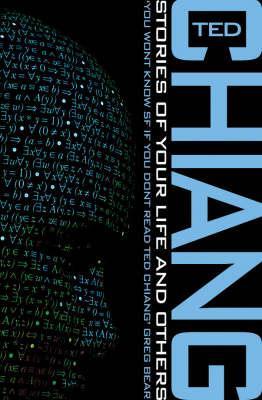



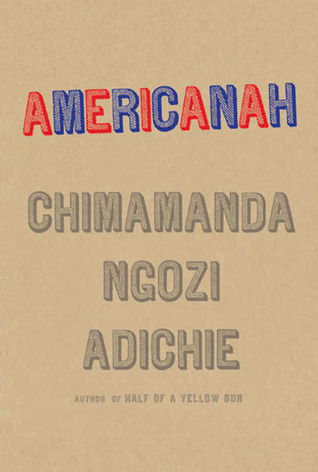





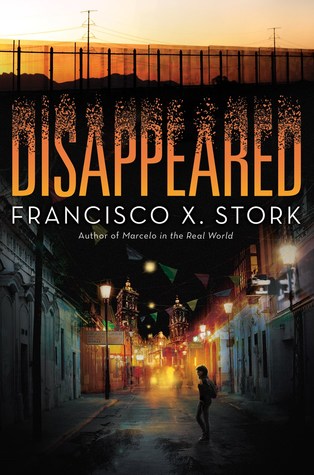

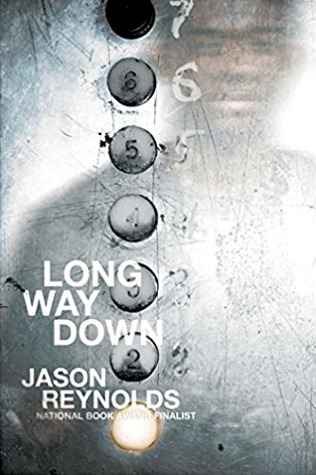

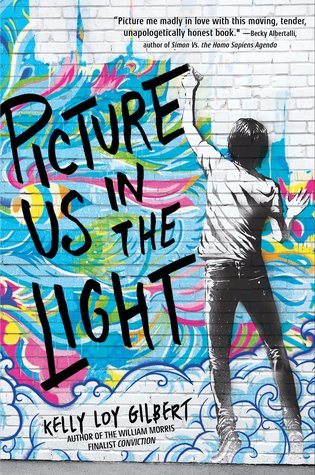
Want to win one of these glorious books? Here’s how.

October 19, 2017
RAISING FUNDS FOR US VIRGIN ISLANDS HURRICANE RELIEF
[image error]
A few weeks ago, the publishing industry came together to raise over $200,000 for hurricane relief in Puerto Rico through auctioning books, critiques, Skype visits, etc., so the good folks behind #USVIPubFund are trying to do it again to help the U.S. Virgin Islands. Check out their site here and if you feel so inclined, please consider placing a bid on one of the over 300 items up for auction. I’ve donated a book bundle that includes signed copies of An Infinite Number of Parallel Universes, Welcome Home, and an ARC of my forthcoming After the Shot Drops. But hurry–the auction ends today (Oct. 19) at 9PM Eastern Time!

August 1, 2017
AFTER THE SHOT DROPS COVER REVEAL + CHAPTER ONE!
[image error]
A little over a week ago, Paste Magazine hosted the cover reveal for my next book, After the Shot Drops which comes out on March 6, 2017 from Houghton Mifflin Harcourt. I might be biased, but I’m all about it! The designer (whose name I don’t know yet) did an amazing job of creating some beautiful imagery that manages to visually convey some of the book’s most important themes. Even though I’ve included the cover above, you can follow the link to Paste’s post to read the opening chapter of the book. ATSD is also now available for pre-order over at Amazon, and don’t forget that every time someone adds it to their Goodreads to-read shelf, a narwhal gets its wings.

July 19, 2017
KEEPING UP WITH YA
I put on my teacher hat last night and talked to my friend CJ over at his vlog, Real Rap With the Reynolds, primarily about getting kids into reading. One of the questions we were asked at the end of the livestream was how does one know what good YA books are out there. This is a great question–one to which the answer could be useful to teachers, parents, or readers themselves. As I said in the vlog, when kids tell me they hate reading, most of the time I think they mean that they hate reading the types of books usually assigned in school. But I believe there are books out there for every type of kid, now more than ever, and as an English teacher, I try to keep on top of what’s out so I never miss an opportunity to connect a kid with a book they might enjoy. I also believe in the transformative power of the written word, so I think making such a connection can be more important than anything I might teach in class.
With that said, my instinct is to make a list of all my favs. However, it’s probably more helpful to teach someone to fish. So, instead of a list of books, here’s a list of ways you can keep up with what’s coming out in children’s literature:
Pay attention to bestseller lists. These are not the be-all-end-all, but they’re an easy starting point for tracking what’s selling/what kids are reading these days. Personally, I keep an eye on the YA sections of the NY Times and Indiebound lists.
Pay attention to award winners. For a multitude of reasons, there are some amazing books (which tend to be more “literary”) that never hit the above lists. For that reason, check out award winners. The National Book Award has categories for children’s lit, and the Newbery, Printz, and Caldecott are probably the most well-known of awards for children’s lit. But it’s a fact the selection committees often overlook books by/about marginalized people, so don’t sleep on the Coretta Scott King awards (African American), the Pura Belpré awards (Latino/a), the Lambda and Stonewall awards (LGBTQIA+), or the APALA awards (Asian/Pacific American). Of course, there are many other book awards out there, so if you have a specific community in mind, a quick Google search can help you find awards organizations geared towards those specific communities.
Follow your (or your students’) favorite authors on social media. Many authors post about books they’re reading or that they’ve really enjoyed, so this is an easy way to have new books cross your path with little effort.
Keep track of hashtags like #WNDB (We Need Diverse Books) or #ownvoices. People will often use these to highlight books by marginalized authors that may be getting overlooked by bestseller lists and awards committees. Also, We Need Diverse Books recently launched a new app, Our Story, which is a great curated resource for discovering books about specific marginalized communities.
Find a book blogger, book tuber, book tumblr ,or #bookstagram account that you like. There are a lot of book enthusiasts out there on all social media platforms, but once you find someone who seems to jive with the kind of books you’re looking for on a platform you feel comfortable using, this can be a fantastic stand-in for a real life friend feeding you recommendations.
Check end-of-year lists. A quick Google search for “Best YA books 2017” or something like that can be another easy way to discover new books that might be overlooked in other realms. Again, there are a lot of lists like that out there, so look for someone who seems to share your (or your kids’) tastes. My caution with this is that just because a book isn’t appearing on these lists doesn’t mean it wasn’t great (or vice versa)–I think sometimes people build their own lists by searching such lists, creating the whole mirror-reflecting-another-mirror kind of effect.
Talk to your school’s librarian. I tend to overlook this because I haven’t worked at a school with a library for almost a decade, but librarians are obviously people who have dedicated their lives to books, so they tend to have deep knowledge of what’s current and relevant to the community. If your school doesn’t have a librarian, most public libraries or bookstores will have someone who’s responsible for ordering the children’s books, so make them your bestie.
Convince your school to subscribe to a children’s literature review publication. The Horn Book and School Library Journal are great resources that offer short reviews of upcoming books for kids, while other publications like Publisher’s Weekly and Kirkus offer reviews across all categories/age ranges. Whichever one you subscribe to, I’d recommend keeping a hard copy of the latest issue in the teacher’s lounge for all to peruse.
Attend book events. Certain bookstores and libraries often host author events, book clubs, panels, etc., so see if there are any near you that do so. If so, sign up for their newsletter so you know what they’ve got going on (Pro-tip: Usually the independent bookstores host the best events). Also, find book festivals that occur in your area. Beyond meeting and hearing from authors you already know, festivals are great places to discover new books and to connect with like-minded people. If you find any such events, be sure to share them with your students.
Keep in mind that “good” is subjective. The most important thing, in my opinion as a teacher, is to know your kids’ interest and keep an eye out for books to put in their hands.
Obviously, there are A TON of books in the world. You don’t need to do all of the above–I’d find some manageable combination of a handful. Also, you certainly don’t need to read every single book you come across. Most of the time, it’s enough to go to a kid and be like, “Hey, I saw this book the other day that I think you might like. I haven’t read it yet, but you might enjoy it because I know you’re into ___.” I’d also say that it’s important for all teachers and parents to have some knowledge of what’s out there. English teachers tend to prefer fiction, so math/science/history/art/etc. teachers who have a finger on the pulse of nonfiction offerings can play a vital role in a kid’s reading life, as well.
If there are any methods you use for staying current with children’s literature that I missed, feel free to include it in the comments below!

May 17, 2017
SHIFTING THE SPOTLIGHT
In what I believe is the first photograph of me that exists, there is a woman standing behind me who is neither my mother nor my lola (with whom I lived with for the first year of my life). Instead it was a woman casually referred to as the “maid.” In my visits to the Philippines over the years, I had noticed many such “maids.” These women were all but invisible. I was told that these were the poorest of the poor, those from far-flung provinces who had so little that they moved to the cities to clean, cook, launder, and care for the slightly less poor for the sake of survival, for the sake of sending something back to their families so that their children might have more someday.
I had completely forgotten about the woman in that photograph until Tuesday morning when a number of Filipino friends sent me Alex Tizon’s article “My Family’s Slave” published online by the Atlantic on May 16. When I had the chance to read it, I had to fight back tears so I wasn’t crying in front of my colleagues and students. It struck me as beautifully written, not because of flowery language, but because of its brutal honesty. I found it nuanced and unflinching. It read to me like a confession, a balancing act of hatred for the worst parts of self/family /culture/immigration and love for the best parts of Lola Eudocia, as noted by @sarahjeong. Throughout it all, I felt the author acknowledged how fucked up the entire situation was, especially his own complicity.
But the most important thing about the article, in my opinion, was that it called out the arrangement for what it was—slavery. I ended that article empathizing with Lola Eudocia’s tragic life and a number of questions haunted me throughout the day: How complicit am I in such a system? Were/are my family’s domestic “helpers” paid fairly, or were/are they enslaved? Did they choose that arrangement, or were they “given” to someone like Lola Eudocia? Should I ask my family? How widespread is such a situation in the Philippines and among Filipinos abroad today? What can we do for her family? What can we do about it globally? What else am I complicit in perpetuating?
Without Lola Eudocia’s story, I wouldn’t have been asking these questions of myself yesterday. I hoped to find others’ responses to them around social media when I logged on after work. Instead, I was confronted with a much simpler one: Is Alex Tizon a villain?
My Twitter feed was filled with threads that clearly and carefully laid out the reasons they believed he was, each one delivered in 140 characters or less. Generally, the tweets I read criticized the article as a well-written attempt to trick readers into sympathizing with a slaveholder. They equated it to the American South’s attempts to justify slavery. They called out Alex Tizon for doing nothing about it once he became an adult. They mourned the erasure of Eudocia Tomas Polido’s identity and voice. They decried the lack of statistical context. One made an argument founded on a blatantly inaccurate reading of part of the article (and was, disturbingly, retweeted and favorited by hundreds). For these reasons, the overall conclusion seemed to be that Alex Tizon and his family should burn in hell and we should all cheer for that.
These responses baffled me. I know that we all bring our own specific biases into anything we approach, yet it was like we had read two completely different articles. When I got to the end, I didn’t feel as though Tizon had denied or excused himself or his family from their sins. He named it as slavery. He confessed to his family’s cruel treatment of Lola Eudocia in great detail. He claimed his complicity and recounted his own feeble attempts to fix a situation he didn’t know how to fix. He acknowledged the shittiness of not returning her ashes in an urn. And, finally, he tried to tell Lola Eudocia’s story with the information he was able to glean from her and her family. Ultimately, I didn’t get to the end of the article and feel like he was trying to exonerate himself. I felt for Lola Eudocia, not Alex Tizon, and I thought that was a result of the text having achieved its purpose.
Of course, Alex Tizon was not perfect and neither is the article. Why didn’t he try to do more in his young adulthood? Why did he word certain things in certain ways? Why didn’t he include interviews with her surviving family members? Did he ever offer her family any kind of reparations? Do they want reparations? I don’t know the answers to these questions, and, unfortunately, Tizon is no longer alive to tell us.
But perhaps a lot of these answers are rooted in the same reasons all of us fail to do what is right in a thousand small ways every day. There’s a pretty good chance that you’re reading this on a smartphone, and I’m guessing in the last few years you’ve probably come across a number of reports about the poor working conditions in the Chinese smartphone factories or about the Congolese who mine the rare earth metals that power those phones. Knowing this is all unspeakably unjust, what have you done? I’m not pointing this out to let Tizon off the hook or to put you on trial, but rather to suggest that asking why he wasn’t better at doing what was right every step of the way isn’t the most fruitful line of discussion. We are all complicit in a number of evils. We all perpetuate oppression throughout our daily lives. (Granted, some more than others.) This is not a reason to give up all efforts to reduce the extent to which we do so, but it is a reason not to spend all of our time cataloging an individual’s sins.
I think it’s also important to note that those defending Tizon are mostly Filipino, while those whose immediate response was overwhelming criticism are mostly not. Many are justifiably upset when men coopt conversations about women’s rights, or when white people try to take over Black Lives Matter issues. Yet, that is what is happening here. Many people are calling out a foreign culture with unabashed confidence that their assessment of the situation is an objective truth. As @RinChupeco questions, do they know the history of the Philippines and its hundreds of years suffering at the hands of imperialism? Are they familiar with its customs and values? Do they know what it feels like to call someone “lola”? I’m not asking any of these questions to imply that outsiders should never voice their opinions on the matter, but rather to wonder if they first listened to those who are part of the community.
I haven’t looked through the entire Twitter history of everyone who criticized Tizon’s article, but my guess would be that if I did, I wouldn’t see a whole lot of previous attention paid to the Philippines on many of their accounts—and I’m guessing I won’t see many more after this story stops trending . Ultimately, the anger I feel regarding the pushback isn’t because the criticism itself is invalid, but because the critics—for whom this topic might just be the Controversy of the Day—hijacked the conversation away from my community, just as @luiinthesky and @nicasiosilang lamented. This article was poised to spark a necessary and difficult conversation for Filipinos in the Philippines and abroad, and I’m not sure it will anymore. The spotlight has shifted, and it seems too heavy to move back. Here we all are, writing think-pieces and Twitter threads back and forth trying to measure the villainy of the deceased author and his family instead of confronting these issues and exploring how we can dismantle the widespread, systemic horrors of the modern-day slavery that allow Lola Eudocia’s story to resonate with so many of us in the first place.
Related reading (s/o to @JiaTolentino for compiling many of these links in her thread):
“Israel’s Invisible Filipino Work Force”

Randy Ribay's Blog
- Randy Ribay's profile
- 1032 followers



